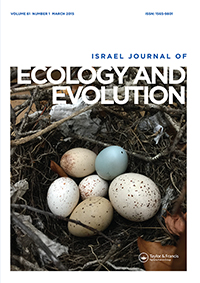Mail:
876 Newell Drive, 111 Bartram Hall
Gainesville, FL 32611-8525.
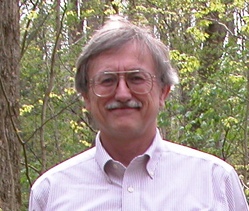 Robert D. Holt
Robert D. Holt
Director
Professor, Eminent Scholar and Arthur R. Marshall, Jr., Chair in Ecological Studies
Ph.D., Harvard University
111 Bartram Hall
(352) 392-6917
email: rdholt@ufl.edu
National Academy of Sciences Member 2022!
Wiley Most cited author CERTIFICATE 2023
Scholar receives one of the highest honors for American scientists
UF news: Did COVID-19 prediction formulas miss something? New study suggests yes.
My core personal research focuses on theoretical and conceptual issues at the population and community levels of ecological organization, and on the task of linking ecology with evolutionary biology. In addition to basic research, I am interested in bringing modern ecological theory to bear on significant applied problems, particularly in conservation biology. I have also carried out large-scale experiments on habitat fragmentation. My students include both theoreticians and empirical, experimental ecologists. I have historically collaborated with many faculty at a wide range of institutions, both inside and outside the USA. Web page with links to publications. Web page link to Awards and Honors.
Graduates
 Sikander Khare
Sikander Khare
Ph.D. Student, Biology
University of Florida
M.Sc., Indiana University
110 Bartram Hall
Email: s.khare@ufl.edu
Sikander’s current interests are in community ecology, ecosystem ecology, spatial ecology, eco-evolutionary dynamics, and ecological forecasting. His doctoral work is at the intersection of community ecology and ecosystem ecology with a focus on the connecting ecological theory to empirical data in a wide range of ecosystems. His research touches on biodiversity-productivity relationships in forests, nutrient cycling in aquatic food webs, and timeseries analysis of predator-prey timeseries of wild populations. As a research assistant, Sikander has worked on a variety of topics within spatial ecology, eco-evolutionary dynamics, and infectious disease ecology. Sikander has a background in physics, complex systems science, and network science with a B.Sc. in Physics from Imperial College London and a M.S. in Informatics at Indiana University.
 Yuanming Lu
Yuanming Lu
Ph.D Student, Biology
University of Florida
M.Sc., University of Miami
110 Bartram Hall
Email: yuanming.lu@ufl.edu
Yuanming Lu has concentrated her doctoral work on the invasion of south-Florida vegetations by Melaleuca quinquenervia and the biological control agents deployed against it. Building on an M.S. thesis that documented Melaleuca’s litter-mediated suppression of native seedlings, her Ph.D. research continues to use individual-based simulations (MATLAB and, increasingly, Python) to explore how contrasting dispersal rates and host–pathogen interactions shape long-term species coexistence.
Yuanming earned a B.S. in Ecology and Evolution from Stony Brook University, NY and an M.S. in Biology from the University of Miami, FL. Broadly, she is a theoretical ecologist interested in invasion biology, and spatial population dynamics—always looking for ways to translate model insights into practical management strategies.
Post Docs
 Claire Godineau
Claire Godineau
Postdoctoral Associate
Ph.D., University of Montpellier, France
110 Bartram Hall
Email: clairegodineau@ufl.edu
Claire investigates the intricate factors that drive eco-evolutionary change, such as genetic variation, mating patterns, inbreeding depression, competition, and age structure. In her previous postdoc at Temple University, Claire focused on how species adapt to environmental changes within isolated populations. Her work revealed the critical importance of seed banks in evolutionary rescue, i.e., the ability of a population to avoid extinction after an environmental change through genetic adaptation. During her PhD at the University of Montpellier, France, Claire also investigated how assortative mating, (a mating pattern where individuals are more likely to mate with others who have similar phenotypes) and sex-specific selection can affect genetic adaptation to a changing environment. Currently, Claire is engaged in exploring the role of spatial connectivity among populations. She is examining how this connectivity, when combined with varying selection strength, can either enhance or impede evolutionary rescue. In addition, Claire collaborates with Jason Scrabulis and a broader team to study eco-evolutionary dynamics of infectious disease via a system involving a fungal pathogen, an invasive grass and hemp. Through her work, Claire intends not only to advance our understanding of evolution and adaptation but also to contribute to practical solutions for ecosystem health and management.
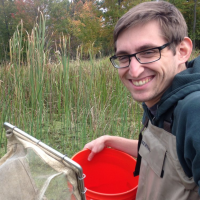 Jason Scrabulis
Jason Scrabulis
Postdoctoral Associate
Ph.D., Oakland University, Rochester, Michigan
110 Bartram Hall
Email: jason.sckrabulis@ufl.edu
Jason Sckrabulis is a disease ecologist working at the intersection of experimental and quantitative/theoretical approaches. His scientific approach and philosophy are to conduct well-designed experiments that can be used to simultaneously describe biological patterns empirically and be useful for developing/validating predictive models. He is also an advocate for open data and pushes for open-source software and hardware solutions and code availability.
Jason’s previous work utilizes metabolic theory as a framework for directly modeling temperature-dependent ectotherm host-parasite interactions, which has been used to successfully predicted experimental infection data from a variety of host (amphibians & snails) and parasite taxa (trematodes & fungi). He also has extensive field experience in the distribution and management of both snail-borne parasites and toxic cyanobacteria in lakes.
Website: http://www.jasonsckrabulis.com
Staff
Vitrell McNair-Sherif
Administrative Assistant II
University of Florida
111 Bartram Hall
(352) 392-6916
email: vitrell@ufl.edu
Vitrell is the administrative staff for the Arthur R. Marshall, Jr., Laboratory of Ecological Sciences; she has been with the department since 2004, and with Dr. Holt’s lab since 2008.
Vitrell has been listed in a total of 4 national and international engineering journals as Editorial Assistant, to the Editor, and has been acknowledged in multiple scientific papers by various authors for assistance, over the decades.
The cover photograph for the March 2015 issue of the Israel Journal of Ecology and Evolution (shown below – click for larger version), was taken by Vitrell, and the FLMNH staff, for Dr. Holt. This issue featured the essay “Inference to the best explanation: Reflections on the issue of climate change,” by Dr. Robert D. Holt, Ecology Chair, in which he used the metaphor of Easter egg baskets in discussing scientific inference.
Vitrell has been with the University of Florida for over 33 years.
Courtesy Professors and Associates
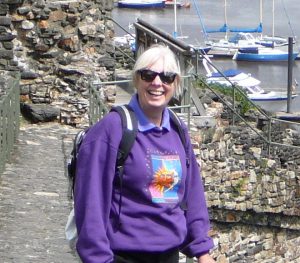 Mary Christman
Mary Christman
Courtesy Associate Professor
Ph.D., George Washington University
110 Bartram Hall
Email: marycchristman@gmail.com
Mary Christman’s background and interests are at the intersection of statistical methodology and environmental and ecological research. Her current interests include development and application of statistical methods for spatial modeling of community structure and species abundances; accounting for uncertainty and sampling error in models of population dynamics; analyses when data are zero-inflated; developing sampling designs and estimators for rare and elusive species; linear and non-linear mixed models; hierarchical modeling; and sampling strategies for spatial data analysis. I collaborate and consult with scientists across many disciplines, including agriculture and natural resources, zoology, ecology, human nutrition, fisheries, and wildlife conservation. Curriculum vitae.
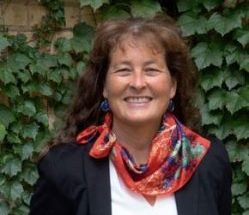 Jeannine Cavender-Bares
Jeannine Cavender-Bares
Courtesy Professor
Distinguished McKnight University Professor
University of Minnesota, St. Paul
Ph.D., Harvard University
Email: cavender@umn.edu
Jeannine’s work focuses on the physiological and evolutionary dimensions of plant ecology that influence community assembly and ecosystem function. She is particularly interested in the genetic and evolutionary basis of variation in plant phenotypes and spectral properties that can advance remote sensing of biodiversity, particularly detecting change through time and its consequences for ecosystems. She is committed to advancing international efforts for global monitoring and assessment of biodiversity and ecosystem services to aid management efforts towards sustainability. She is the Vice President for Finance of the Ecological Society of America and a member of the American Academy of Arts and Sciences.
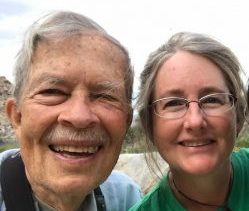 Lisa Davenport
Lisa Davenport
Courtesy Professor
Lisa has been working for >20 years on studies of animal behavior, ecology and limnology in the tropics, including with otters, elephants, birds, and oxbow lake ecology. She also has a keen interest in translating science into conservation, particularly on the issue of “paper parks” in tropical regions. In the course of this work she has led expeditions in many countries, including in Peru, Brazil, Gabon, and in northern peninsular Malaysia. Recently she has been concentrating on studying intra-tropical migration in South American birds, and managing 6 collaborative teams that work in several South American rivers, including the Manu River in Peru, the Araguaia, Branco and Juruá rivers in Brazil, and the Meta River in Casanare, Colombia. Lisa is a National Geographic Explorer, a former councilor of the Association for Tropical Biology, and a co-founder of Juruá Institute.
 Nicholas Kortessis
Nicholas Kortessis
Courtesy Professor
Assistant Professor, Wake Forest University
Ph.D., University of Arizona
309 Carr Hall
Email: n.kortessis@ufl.edu
Nick is a theoretical evolutionary ecologist. Much of what he tries to understand is what factors cause differential fitness, which is the ecological force of evolutionary change. Evolutionary change often changes ecology, leading to dynamical feedbacks between ecology and evolution. Kortessis uses mathematical tools to describe this feedback in order to understand ecological patterns in nature. Nick’s graduate work was on ecological character displacement in temporally variable environments. He currently works on movement of organisms in spatially fragmented environments, asking how landscape change may alter an organism’s ecology. He is also involved in a project understanding how plant pathogens influence plant communities. Pathogens generally evolve quickly relative to their hosts. Evolutionary change of the pathogen figures prominently in this work. You can read more about his work at his website, nickkortessis.weebly.com.
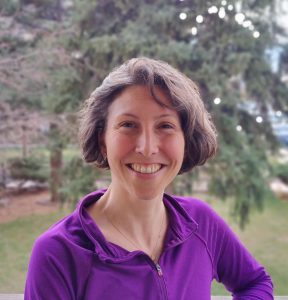 Margaret Simon
Margaret Simon
Courtesy Professor
University of Florida
Ph.D., University of California-Los Angeles
110 Bartram Hall
Email: margaret.simon@ufl.edu
Margaret is a theoretical ecologist interested in the interplay between processes occurring at the level of the individual and population, and those that emerge when considering the interaction between two or more species. Margaret is particularly intrigued by the role of juvenile maturation and individual-level behavior. How do these ubiquitous features alter the collective (population dynamics and species interactions), and how do these higher organization levels in turn modify the lower-level features? She explores these ideas using two main areas of study: 1) infectious disease with a focus on host stage-structure in ectotherms and size-structure in plants, and 2) climate change approached by scaling the temperature responses of life history traits into predictions for the outcome of native-invasive competition and the distribution of invasive species. When possible, she strives to build her modeling framework on a foundation of first principles.
 John W. Terborgh
John W. Terborgh
Courtesy Professor
James B. Duke Professor Emeritus of Environmental Sciences & Co-Director of the Center for Tropical Conservation
Duke University
Ph.D., Harvard University
Email: manu@duke.edu
Dr. John W. Terborgh is a member of the National Academy of Science, and for the past thirty-five years, he has been actively involved in tropical ecology and conservation issues. An authority on avian and mammalian ecology in neotropical forests, Dr. Terborgh has published numerous articles and books on conservation themes. Since 1973 he has operated a field station in Peru’s Manu National Park where he has overseen the research of more than 100 investigators. Dr. Terborgh earlier served on the faculties of the university of Maryland and Princeton University. In June 1992 he was awarded a John d. and Catherine T. MacArthur Fellowship in recognition of his distinguished work in tropical ecology, and in April 1996 he was awarded the National Academy of Science Daniel Giraud Elliot medal for his research, and for his book “Diversity and the Tropical Rainforest.” He has served on several boards and advisory committees related to conservation, including the Wildlands Project, Cultural Survival, The Nature Conservancy, The World Wildlife Fund and both the Primate and Ecology Specialist Groups of the International union for the Conservation of Nature.
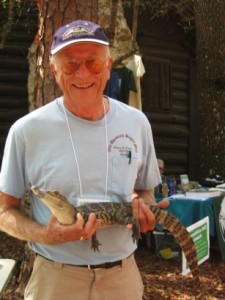 Robert Ulanowicz
Robert Ulanowicz
Courtesy Professor
Professor Emeritus of Theoretical Ecology
University of Maryland
Ph.D., Johns Hopkins University
Email: ulan@umces.edu
Dr. Robert Ulanowicz has spent his career on Chesapeake Bay creating quantitative methods to analyze networks of trophic transfers. He has developed methods that quantify indirect effects, trophic hierarchies, domains of recycling and whole system indexes of ecosystem organization and flexibility. In the process, he has reached the conclusion that the dynamics of ecosystems are hardly mechanical, but rather dual and dialectic-like. Consequently, he has proposed a perspective on nature that is predicated on processes rather than on objects and laws. His current interest is in promulgating the necessity of indeterminacy for ecosystem sustainability. In economic terms, the implication is that parallel, alternative currencies are likely required to impart sustainability to local and national economies. More than anyone ever wanted to know about him can be found at http://www.cbl.umces.edu/~ulan.
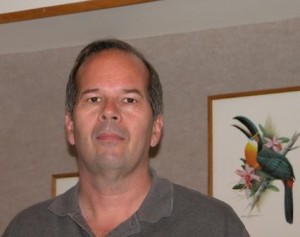 Michael Barfield
Michael Barfield
Courtesy Assistant Scientist
Ph.D., University of Kansas
Email: mjb01@ufl.edu
Michael Barfield worked at the Ecological Sciences Laboratory doing research on theoretical population biology from 2001 through 2021. Publications include research on adaptation in source-sink systems, infectious disease ecology, effects of temporal variation on populations, evolution, species ranges, phenotypic plasticity, evolutionary rescue, habitat connectivity, Allee effects, food webs, tropical forest diversity, mimicry, partial clonality, and aquatic ecology.
Associates and Past Graduates
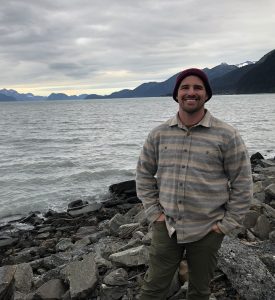 James Peniston
James Peniston
Assistant Professor
University of Alaska, Anchorage
Ph.D., University of Florida
Kenai Peninsula College, AK
Email:jhpeniston@alaska.edu
Jimmy is a theoretical ecologist and evolutionary biologist. Jimmy’s graduate work, which was done under the mentorship of Bob Holt, focused on the eco-evolutionary responses to environmental change in temporally fluctuating environments. They also study the evolutionary ecology of dispersal, life history, and animal signaling. Currently, Jimmy is developing research projects on Alaska’s Kenai Peninsula where he lives and works.
Previous Personnel
(Names link to old Marshall lab web pages.)
Visiting Faculty
Luiz Dos Anjos, here for 2008, Londrina State U., Londrina, Brazil.
Leticia Aviles, Spring 2011, University of British Columbia.
Mark Taper, September 2011-February 2012, Montana State U.
Visiting Scientists
Pitágoras da Conceição Bispo
Ciro C.Z. Branco
Postdocs
Tiffany Knight, postdoc 2003-4, now at German Centre for Integrative Biodiversity Research, Martin Luther University of Halle-Wittenberg and the Helmholtz Centre for Environmental Research (UFZ).
Nicholas Friendenberg, postdoc 2003. His website
Manojit Roy, postdoc 2004-2010, now at the University of Michigan.
Ricardo Holdo, postdoc 2005-2010, now at the University of Georgia.
Taal Levi, postdoc 2013-2014, now at Oregon State University.
Cristina Goncalves, postdoc 2014.
Nick Kortessis, postdoc 2021-2023.
Margaret Simon, postdoc 2021-2023.
Graduate Students
Tristan Kimbrell, Ph.D. 2007.
Tania Kim, M.S. 2006.
Gabriela Blohm, M.S. 2008.
Connie Clark, Ph.D. 2009.
Cedric Worman, Ph.D. 2012.
Smriti Bhotika, Ph.D. 2012.
Kristen Sauby, Ph.D. 2017.
Student Assistants
David J. Hall
Vanessa Trujillo
Yaneke (Yani) Paulay
Lab Visitors
Colleen Webb, Colorado State University.
Richard Gomulkiewicz, Washington State University.
Jeannine Cavender-Bares, U. of Minnesota.
Carolina Murcia, Science Director for the Organization of Tropical Studies.
Jin Yao, New Mexico State U.
Ido Filin, U. of Helsinki.
James Estes, U. of California, Santa Cruz.
Michael Rosenzweig, U. of Arizona.
Sam Scheiner, Program Director, Division of Environmental Sciences, National Science Foundation.
Val Smith, U. of Kansas.
Michael Bonsall, U. of Oxford.
Per Lundberg, U. of Lund, Sweden.
Leticia Avilés, U. of British Columbia.
Lev Ginzburg, Stony Brook University.
Roger Arditi, Université Pierre et Marie Curie, Paris.
Maria Orive, University of Kansas.
William Godsoe, Lincoln University (New Zealand).
Xiao Song, Zhejiang University, China.
Shilu Zheng, Zhejiang University, China.
Owen Petchey, University of Zurich, Zurich, Switzerland.
Andy Gonzalez, McGill University, Montreal, Quebec.
Meghan Duffy, University of Michigan.
Joel Brown, Moffitt Cancer Center.
Tom Givnish, University of Wisconsin-Madison.
Shripad Tuljapurkar, Stanford University.
Joel Brown, Rockefeller and Columbia Universities.
Egbert Giles Leigh, Jr., Smithsonian Tropical Research Institute.
